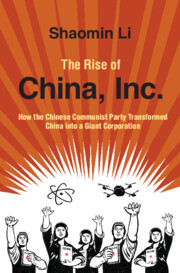1 - Introduction
Who Lost China?
Published online by Cambridge University Press: 06 January 2022
Summary
In 1976, Chinese Communist Party (CCP) Chairman Mao Zedong died, providing an opportunity for China to change his revolutionary course that led the country to ruin. In the late 1970s, the CCP changed course and began to open China to investment and trade. The democratic countries welcomed the change and engaged with China, hoping that economic development would lead to democratization. Forty years later, the Chinese economy has become the largest in the world, but democracy and the rule of law are still missing. This chapter provides an overview of the book. The author argues that, wielding its absolute and total control, the CCP has made the entire country into a giant corporation. China, Inc. has the agility of a corporation and the resources of a country, making it extremely competitive globally. However, China, Inc. also has its built-in contradiction: its need to close China from the democracies’ influence, and its reliance on the world’s openness to thrive. Based on the China, Inc. perspective, the author makes policy and strategic suggestions for the democracies and multinational corporations dealing with China.
Keywords
- Type
- Chapter
- Information
- The Rise of China, Inc.How the Chinese Communist Party Transformed China into a Giant Corporation, pp. 1 - 12Publisher: Cambridge University PressPrint publication year: 2022



